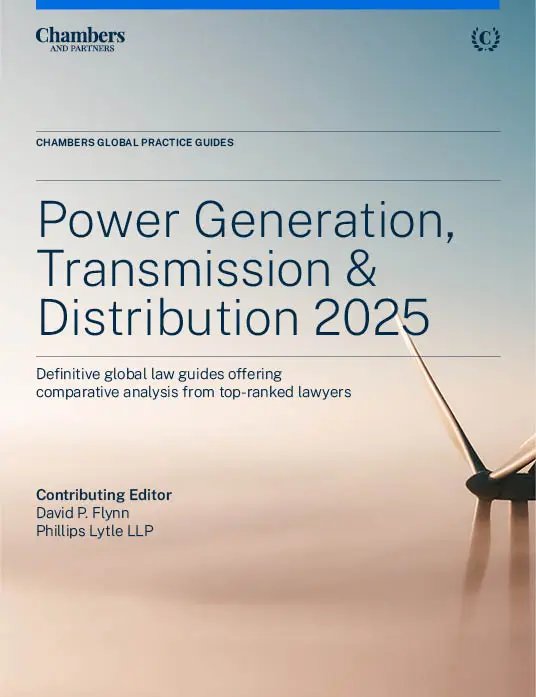
NO&T Asia Legal Review
On 15 November 2022, the Department of Energy (“DOE”) issued Department Circular No. DC2022-11-0034 prescribing amendments to the implementing rules and regulations of the Renewable Energy Act, and allowing for corporations that are fully foreign owned to enter into renewable energy service and operating contracts with the Philippine government.
Republic Act No. 9513 or the Renewable Energy Act (“RE Act”) was enacted on 16 December 2008, and established the framework for the accelerated development and advancement of renewable energy resources (“RE Resources”). It also provided for incentives for renewable energy projects and activities of renewable energy developers (“RE Developers”).
The RE Act defines RE Developers simply as individual/s or a group of individuals formed in accordance with existing Philippine laws engaged in the exploration, development and utilization of RE Resources and actual operation of RE systems/facilities. RE Resources were in turn defined as energy resources that do not have an upper limit on the total quantity to be used, which are renewable on a regular basis and whose renewal rate is relatively rapid. The RE Act mentions that RE Resources include, among others, biomass, solar, wind, geothermal, ocean energy, hydropower (conforming with internationally accepted norms and standards on dams), and other emerging renewable energy technologies.
Although the RE Act does not provide for nationality requirements of RE Developers, nationality based restrictions were introduced in DOE Department Circular No. DC2009-05-0008 or the implementing rules and regulations of the RE Act (“2009 IRR”). In particular, Section 19(B), Rule 6 of the 2009 IRR provided that the State may enter into co-production, joint venture or co-production sharing agreements with Filipino citizens or corporations or associations at least 60% of whose capital is owned by Filipinos.
Such nationality based restrictions were questioned through requests for opinion submitted in 2022 by the DOE to the Department of Justice (“DOJ”), inquiring on the maximum foreign ownership allowed for renewable energy development under the1987 Philippine Constitution.
In DOJ Opinion No. 21, series of 2022 dated 29 September 2022 (“Opinion No. 21”), the DOJ opined that Article XII, Section 2 of the 1987 Philippine Constitution in referring to “all forces of potential energy” and “all natural resources” as being owned by the State, could not have intended to include the sun, wind or ocean as these are not subject of appropriation. Further, the DOJ was of the view that all forces of “potential energy” mentioned in the 1987 Philippine Constitution excluded “kinetic energy”, and in a technical sense, renewable energy sources such as solar, wind, hydro and ocean or tidal energy were kinetic energy sources rather than potential energy sources. Hence, the 40% foreign equity limitation to participate in the exploration, development and utilization of natural resources stated in the 1987 Philippine Constitution had no application to inexhaustible renewable energy resources.
The DOJ, however, qualified that despite its interpretation of the 1987 Philippine Constitution, the limitations under Section 19 of the 2009 IRR (i.e., that solar, wind, hydro and ocean tidal energy is subject to 40% foreign limitation) would continue, unless the 2009 IRR was amended. Similarly, Presidential Decree No. 1067 or the Water Code of the Philippines and jurisprudence, which limited the appropriation of waters direct from the source for power generation to Filipino citizens or juridical persons, will also continue to prevail, unless separately repealed or reversed.
In a subsequent DOJ Opinion No. 23, series of 2022, the DOJ reiterated its discussions in Opinion No. 21, and further clarified that the nationality requirement of the Water Code is applicable because rivers, lakes, streams and other inland bodies of water are considered exhaustible resources which can dry up in extreme weather conditions or climate change (unlike the sea and ocean). However, once such waters pass through the dam, it is converted to or considered as kinetic energy, and the exploration, development and utilization of such kinetic energy for power generation no longer falls within the ambit of the term “natural resources” of the 1987 Philippine Constitution and limited to 40% foreign equity participation.
Based on the above DOJ Opinions, the DOE introduced changes to the 2009 IRR through Department Circular No. DC2022-11-0034, as follows:
a) Deletion of Section 19(A) of the 2009 IRR
Section 19(A) of the 2009 IRR which provided that “All forces of potential energy and other natural resources are owned by the State and shall not be alienated. These include potential energy sources such as kinetic energy from water, marine current and wind; thermal energy from solar, ocean, geothermal and biomass.”, was deleted in its entirety.
b) Amendment to Section 19(B) of the 2009 IRR
The original text of Section 19(B) of the 2009 IRR which provided that the State may enter into co-production, joint venture or co-production sharing agreements with Filipino citizens or corporations or associations at least 60% of whose capital is owned by Filipino, has been amended to now read that “(t)he State may directly undertake the exploration, development, production and utilization of RE resources, or it may entire into RE Service or Operating Contracts with Filipino and/or foreign citizens or Filipino and/or foreign owned corporations and associations”.
Notwithstanding such amendments, it should be noted that following activities continue to be reserved for Filipino citizens or corporations whose capital is at least 60% owned by Filipinos:
In addition to the above, Department Circular No. DC2022-11-0034 also repealed Sections 3.19, 4.2.1 and 4.2.3 of Department Circular No. DC2019-10-0013 or the Omnibus Guidelines Governing the Award and Administration of Renewable Energy Contracts and the Registration of RE Developers (“Omnibus Guidelines”). Said sections in the Omnibus Guidelines limited persons qualified to apply for renewable energy contracts to Filipino citizens or corporations whose capital is at least 60% owned by Filipinos, or to joint ventures or consortiums which organized themselves as a corporation, and complied with the nationality requirements.
As countries grapple with the climate crisis and increasing cost of fuel, the changes initiated by Department Circular No. DC2022-11-0034 signal that the Philippine government is seeking to diversify the country’s energy sources and promote the development and growth of the renewable energy sector. This paves the way for foreign investors to participate in up to 100% in the exploration, development and use of renewable energy, such as biomass, solar, wind, ocean energy and hydropower, in the Philippines.
This newsletter is given as general information for reference purposes only and therefore does not constitute our firm’s legal advice. Any opinion stated in this newsletter is a personal view of the author(s) and not our firm’s official view. For any specific matter or legal issue, please do not rely on this newsletter but make sure to consult a legal adviser. We would be delighted to answer your questions, if any.


Supasit Boonsanong, Thananya Pholchaniko, Phareeya Yongpanich (Co-author)


(August 2025)
Kaori Sugimoto


(July 2025)
Rintaro Hirano, Yutaro Fujimoto, Yurika Masakane, Yutaro Kato (Co-author)


Yuichi Miyashita, Miho Susuki (Co-author)


(July 2025)
Rintaro Hirano, Yutaro Fujimoto, Yurika Masakane, Yutaro Kato (Co-author)


Justin Ee, Kennosuke Muro (Co-author)


Yuan Yao Lee


Hoai Tran


Supasit Boonsanong, Thananya Pholchaniko, Phareeya Yongpanich (Co-author)


Patricia O. Ko


Claire Chong, Nozomi Kato (Co-author)


Yuan Yao Lee


Supasit Boonsanong, Thananya Pholchaniko, Phareeya Yongpanich (Co-author)


Patricia O. Ko


Claire Chong, Nozomi Kato (Co-author)


Yuan Yao Lee


Patricia O. Ko


Patricia O. Ko


Patricia O. Ko


Patricia O. Ko